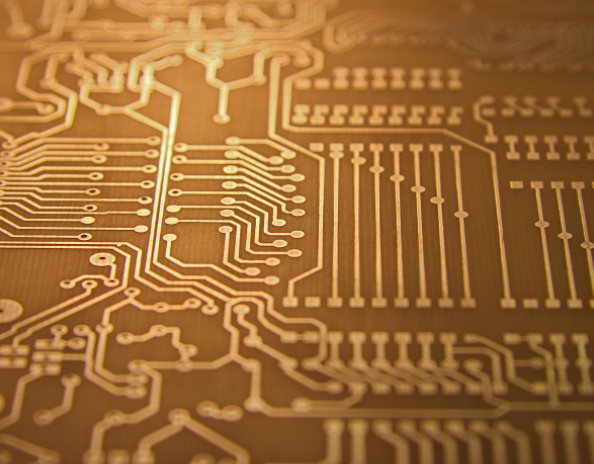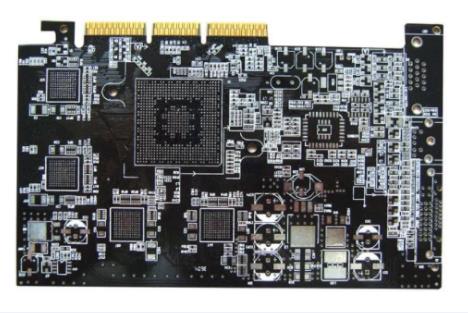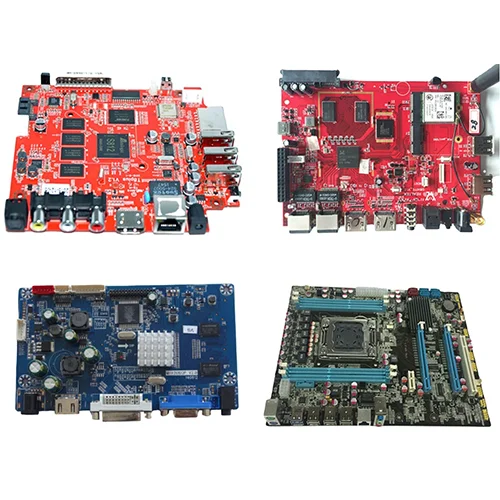
Selection Skills of Magnetic Beads in PCB Circuit Design
The reason for using patch magnetic beads and patch inductors in the design of inner PCB board: whether to use patch magnetic beads or patch inductors depends on the application Chip inductors are required in resonant circuits When it is necessary to eliminate unnecessary EM noise, using chip beads is an option
The organization of the magnetic bead is ohm, not a hunter Special attention should be paid to this Because according to the impedance generated by the magnetic bead at a specific frequency, the structure of the magnetic bead is nominal, and the impedance structure is also ohm Magnetic bead tables usually provide frequency and impedance characteristic curves Generally, 100MHz is used as the standard, for example, 1000R 100MHz, which means that the impedance of the magnetic bead is equivalent to 600 ohms at the frequency of 100MHz
PCB boards

2. Common filter consists of lossless reactive components Its function in the line is to reflect the stopband frequency back to the signal source, so this filter is also called reflection filter When the impedance of the reflection filter and the signal source does not match, part of the energy is reflected back to the signal source, resulting in new interference levels To solve this problem, the incoming line of the screening program can use ferrite magnetic ring or magnetic bead sleeve. The eddy current loss of ferrite ring or magnetic bead on high-frequency signal can be used to convert high-frequency component into heat loss Therefore, magnetic rings and beads actually absorb high-frequency components, so they are sometimes referred to as absorption filters
Different ferrite suppression elements have different suppression frequency ranges Generally, the higher the permeability, the lower the inhibition frequency In addition, the larger the volume of ferrite, the better the inhibition effect When the volume is constant, the long and thin shape has a better inhibition effect than the short and thick shape. The smaller the inner diameter, the better the inhibition effect However, the problem of ferrite saturation still exists in the case of DC or AC bias current The larger the cross section of the suppression element, the less likely it is to saturate, and the greater the bias current it can withstand When electromagnetic interference absorbs magnetic ring/magnetic bead to suppress differential mode interference, the current value passing through it is proportional to its volume, and the imbalance between the two will lead to saturation, which will reduce the efficiency of the module; Connect the two wires (positive and negative) of the power supply to the power supply when suppressing common mode interference At the same time, through the magnetic ring, the effective signal is the differential mode signal. The electromagnetic interference absorption magnetic ring/magnetic bead has no effect on it, but for the common mode signal, it will show a large inductance Another better way to use the magnetic ring is to make the wire pass through the magnetic ring coil for many times to add inductance According to the principle of electromagnetic interference suppression, its suppression effect can be used reasonably Ferrite suppression components shall be installed close to interference sources For input/output circuits, it should be as close to the inlet and outlet of the mask as possible In addition to using consumables with high permeability, attention should also be paid to the application of the absorption filter composed of ferrite magnetic rings and magnetic beads Their resistance to high frequency components in the line is about 10 to several hundred Ω. In conclusion, in high impedance circuits (such as power distribution, power supply or RF circuits), their effect is not obvious
Ferrites are widely used for EMI control because they attenuate high frequencies while allowing low frequencies to pass almost unimpeded Magnetic ring/magnetic bead used for electromagnetic interference absorption can be made into various shapes and widely used in various applications For example, the upper PCB can be added to DC/DC modules, data lines, power lines, etc It absorbs high frequency interference signals on the line it is on, but it will not generate new zero sum poles in the system and will not damage the stability of the system It is used together with the power filter, which can make up for the lack of high frequency efficiency of the filter and improve the filtering characteristics of the system
Magnetic beads are specially designed to suppress high-frequency noise and spike interference on signal lines and power lines, and also absorb electrostatic pulses
Magnetic beads are used to absorb ultra-high frequency signals, such as some RF circuits, phase-locked loops, oscillator circuits, including ultra high frequency memory circuits (DDR SDRAM, Lambas, etc.) need to add magnetic beans to the power input part. Inductance is a kind of storage Energy component, used for LC oscillator circuit, medium and low frequency filter circuit, etc, The application frequency range rarely exceeds 50 MHz The function of the magnetic bead is mainly to eliminate the RF noise existing in the transmission line structure (circuit). RF energy is the AC sine wave component superimposed on the DC transmission level The DC component is the useful signal needed, while the RF energy is useless of electromagnetic interference (EMI) transmitted and radiated along the line. To eliminate these unwanted signal energies, a chip beam is used to act as a high frequency resistor (attenuator), which allows DC signals to be transmitted and filters out AC signals Usually, the high frequency signal is higher than 30MHz. However, the low frequency signal is also affected by the chip magnetic bead The wafer magnetic bead is composed of soft ferrite data, forming a monolithic structure with high volume resistivity Eddy current loss is inversely proportional to the resistivity of ferrite data The eddy current loss is proportional to the square of the signal frequency Advantages of using SMD magnetic beads: miniaturization, lightweight and high impedance in the RF noise frequency range, and elimination of electromagnetic interference in transmission lines Close magnetic circuit structure, better eliminate signal cross winding Excellent magnetic mask structure Reduce DC resistance to avoid excessive attenuation of useful signals Significant high frequency characteristics and impedance characteristics (better removal of RF energy). Eliminate the parasitic oscillation in the high frequency amplifier circuit The effective operating frequency range is from several MHz to several hundred MHz
There are the following suggestions:
1. What is the frequency range of unwanted signals?
2. Who is the noise source?
3. Whether there is space to place magnetic beads on the PCB;
4. How much noise attenuation is required;
5. What are the environmental conditions (temperature, DC voltage, structural strength);
6. What is the circuit and load impedance;
The first three can be judged by observing the impedance frequency curve provided. Among the impedance curves, three curves are very important, namely resistance, inductive reactance and total impedance The total impedance is described by ZR22Ï fL()2+:=fL. From this curve, select a magnetic bead model whose impedance is within the frequency range where you want to attenuate noise, and minimize the signal attenuation at low frequency and DC When the DC voltage is too high, the impedance characteristics of the magnetic beads will be affected In addition, if the operating temperature is too high or the external magnetic field is too large, the impedance of the magnetic bead will be adversely affected Reasons for using chip magnetic beads and chip inductors: Whether to use chip magnetic beads or chip inductors depends mainly on the application Chip inductors are required in resonant circuits need to eliminate unwanted
When EMI noise, using chip beads is an option
SMD magnetic beans and chip directors applications: SMD directors: radio frequency (RF) and wireless communications, information technology equipment, radar detectors, cars, mobile phones, pagers, audio equipment, PDAs (personal digital assistants), wireless remote control systems and low-voltage power modules, etc
SMD magnetic beads: clock generation circuit, filtering between analog circuit and digital circuit, I/O input/output internal connectors (such as serial ports, parallel ports, keyboard, mouse, remote communication, local area networks), radio frequency (RF) circuits It can filter out high frequency conducted interface in the power supply circuit, and suppress electromagnetic interference noise in the computer, video recorder (VCRS), Between the TV system and the logic device susceptible to interference on the mobile phone PCB









